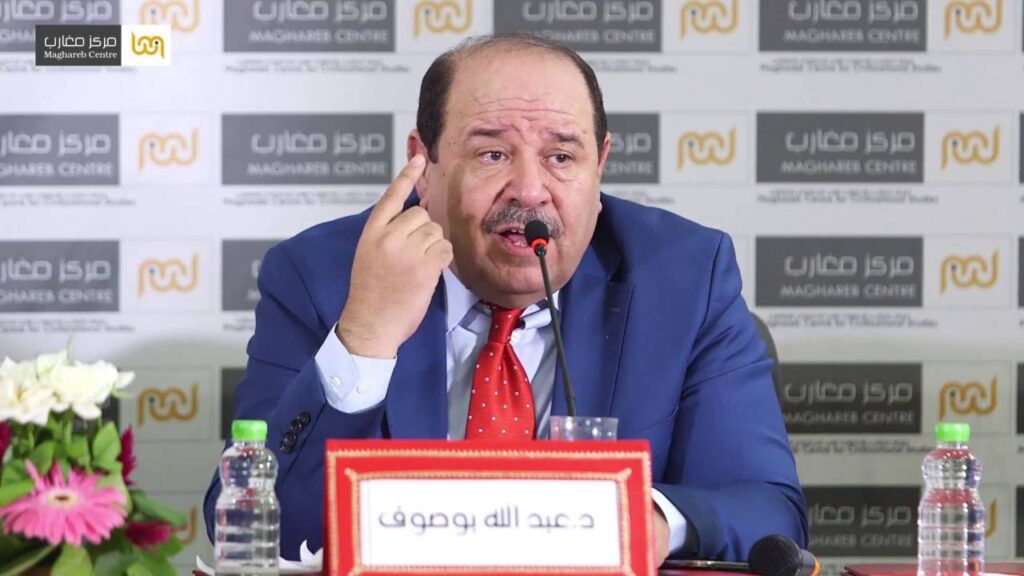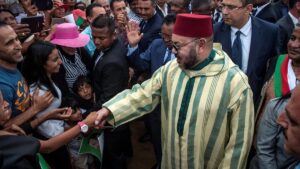South Africa's wall is cracking, and Algeria's gas doesn't warm the isolation

Dr. Abdullah Bousouf
Written by: Dr. Abdullah Boussouf (Historian, Secretary General of the Council of the Moroccan Community Abroad)
The Algerian military regime experienced unusually high levels of sweating throughout the month of July, not because Mediterranean countries recorded unusually high temperatures, but because the regime continued to suffer defeats that raised its temperature and caused it to sweat profusely.
While the same regime is living under the weight of isolation and crises with its border neighbors that have reached a dead end, Morocco, for its part, during the same period, witnessed events with strong political implications, including the historic visit of Jacob Zuma, the former president of South Africa, to Morocco, and his announcement of his support for the autonomy proposal. This means the beginning of the erosion of the South African wall and the end of the consensus to support the separatists within the legislative institution, because Zuma’s party, the “Spear of the Nation Party,” constitutes the largest opposition in South Africa, with 58 members in Parliament.
During the same period, and within the framework of the positive dynamics surrounding the Moroccan Sahara issue, North Macedonia was added to the list of European countries recognizing the autonomy of the Sahrawi regions, while Gambia reiterated its support for Moroccan Sahara.
But the recognition of the autonomy proposal by a country the size of Portugal on July 23 is a painful blow to the military regime in this extremely hot climate. There is no need to recall the history of the Portuguese Empire and its influence, whether in Africa, Latin America, or Asia via its former colonies, as well as its history in the Mediterranean and the Atlantic. Now, it is an important economic and trade partner of Morocco, and a co-host of the 2030 World Cup, alongside the Kingdom of Spain. Not to mention that former Prime Minister António Costa is the current President of the European Council.
On the other hand, I believe that the Stellantis industrial group's announcement of a massive €1.2 billion investment in Morocco, aiming to double its auto production to 535,000 units annually, is a severe blow to the parallel world, which is still struggling with substandard projects with the same economic partner.
The tragedies of the Algerian military regime will not stop there. This July, the European Commission announced "arbitration proceedings" against Algeria for violating the EU-Algeria Partnership Agreement, which entered into force in 2005.
All of this has left the same military regime in a tight corner due to its regional and international isolation, suffocating due to the lack of prospects and solutions. It has no choice but to search for oxygen through a keyhole, imitating the international actor Tom Hanks in his movie “Cast Away” by drawing a human face on a ball, in order to talk to him and escape the isolation.
This critical psychological state of the Algerian regime prompted it to seize the opportunity of the “Italian-Algerian Business Forum,” held in Rome on July 24, to take a large dose of oxygen that would guarantee it some survival in the media arena. It was prepared to pay any price for that dose of life. Therefore, we saw the Algerian regime travel to Rome with most of its government members and businessmen. However, the most important thing was the presence of Sonatrach.
While the forum's business leaders were meeting at the Parc des Princes Hotel in Rome, President Abdelmadjid Tebboune and his government were at the Villa Doria Pamphili, where they met with Prime Minister Giorgia Meloni and Foreign Minister Antonio Tajani. Forty agreements were signed in various fields, including energy, training, agriculture, culture, and defense. Most important, however, was the signing of agreements between Algeria's Sonatrach and Italy's Eni, which specializes in the petroleum industry, exploration, and development.
The content of the agreements was not important. What was more important to the Algerian rulers was to break the deadlock, to engage with the Italian and international media, and to remind Italy that it had replaced Russian gas, that it was the primary energy supplier, that it met 40% of the Italian market's gas needs, and that the gas pipeline linking Algeria and Italy bore the name of the Italian Matteo Mattei, one of the biggest supporters of the Algerian revolution.
All doors are closed in the face of a military regime that funds terrorist organizations and threatens its neighbors and partners with the gas and oil card, which is no longer effective with powerful countries, and even with countries in Africa and the Sahel. Therefore, President Tebboune rushed to Rome to seek help from Rome and the Vatican to play the role of mediators with the European Union countries and reactivate the partnership agreement, despite the fact that some Algerian mouthpieces have carried the slogan “review, not rupture” and claim that Algeria is losing 30 billion euros annually due to the cancellation of fees and investment facilitations.
Thus, the Algerian regime has no choice but to turn to Rome and a pilgrimage to the Vatican to emerge from its intensive care unit, given its international and regional isolation and its involvement in escalating conflicts in Africa and the Middle East. The arrest of Algerian soldiers in Syria is a prime example of this.
I believe that Algeria's quest to find common history and civilization with Italy is an attempt to go back through the window, first because Algeria lacks its own civilizational and historical components, and that its entire history dates back to the countries that colonized it! Secondly, Algeria is always trying to find something in common with Italy, once with Matteo Mattei, and another time with "Ali Piccini", the Italian pirate/slave who became a Pasha after his marriage to the Kabyle princess "Lalla Hom Belkadi", daughter of the Sultan of the Kingdom of Kuku. Her condition was that he build a mosque to validate his faith.
The Algerian military regime is trying by all means to survive, so it left for Rome, carrying with it Sonatrach checks, in search of the elixir of life.





